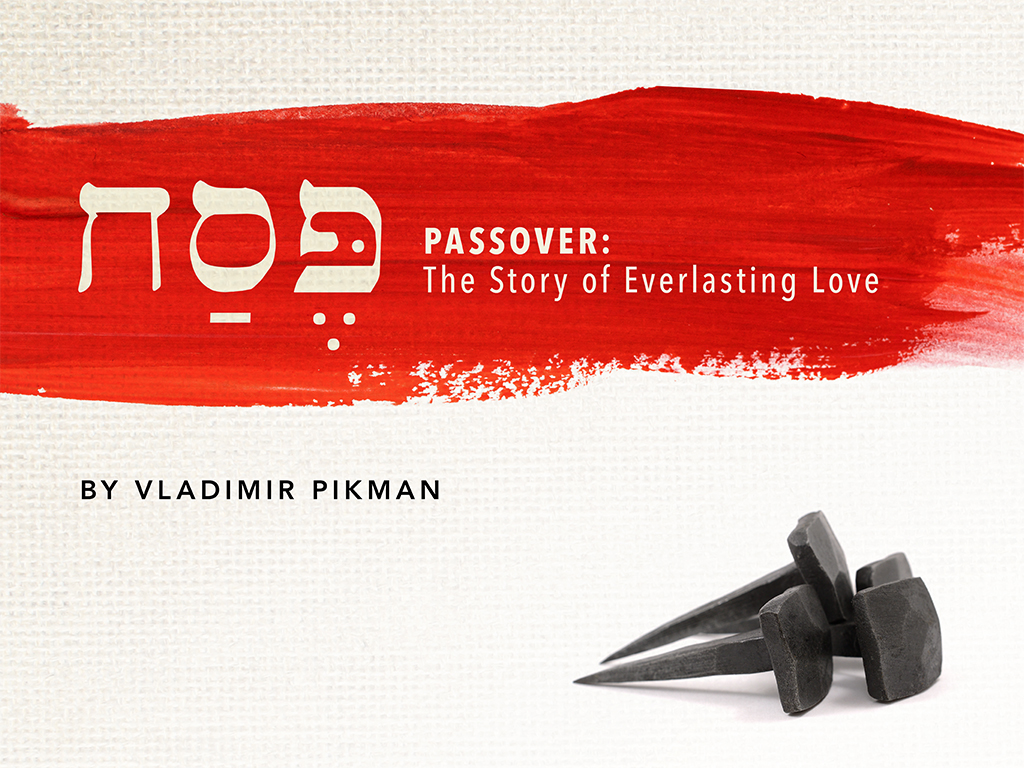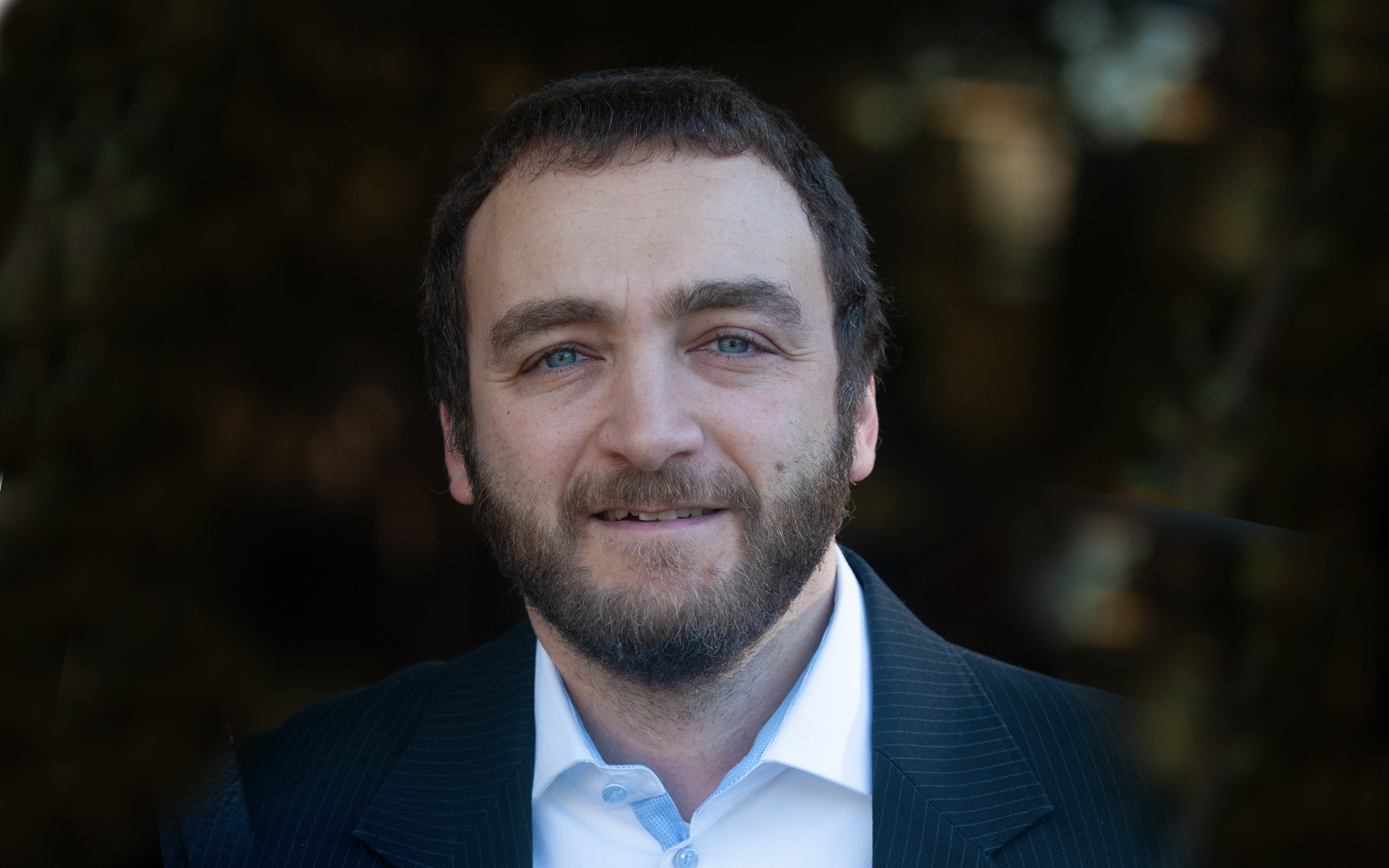Passover: The Story of Everlasting Love

On the evening of April 5 this year, Jewish people worldwide will sit down at their dinner tables with family and close friends to celebrate the Passover seder. They have done this from generation to generation, as God has commanded. The details might vary among different Jewish communities, but the core elements have remained constant from the time of Moses: the lamb (pesach), bitter herbs, and unleavened bread (Exod 12:8). People commemorate the Exodus from Egypt in the way they believe all previous generations have. As followers of Jesus the Messiah, what can we learn about God’s love through the celebration of Passover?
Passover is a celebration of freedom. In the Jewish tradition, however, it is also known as the feast of love. The opening of the Passover Haggadah—the liturgy of the seder—says,
And You have given us, Lord our God, appointed
times for happiness, holidays, and special times for
joy, this Festival of Matsot, our season of freedom [in
love] a holy convocation in memory of the Exodus
from Egypt. In Your gracious love, You granted us
Your special times for happiness and joy.
The love of God has always been at the core of His redemptive work. This is particularly highlighted in the Exodus. The Passover story bears witness to the special love between God and the people of Israel. In the beginning of the story, when God sends Moses to lead the Israelites out of Egypt, He calls Israel “my son, my firstborn” (Exod 4:22). God manifests His love through His compassionate response to the suffering of the Israelites. His love is evidenced in His faithfulness. In other words, He initiated the Exodus because of His love.
The Israelites groaned because of the slave labor.
They cried out, and their desperate cry because of
their slave labor went up to God. God heard their
groaning; God remembered his covenant with
Abraham, with Isaac, and with Jacob. God saw the
Israelites, and God understood. (Exod 2:23–25)
The Lord said, “I have surely seen the affliction
of my people who are in Egypt. I have heard their
cry because of their taskmasters, for I know their
sorrows. I have come down to deliver them from the
hand of the Egyptians and to bring them up from
that land to a land that is both good and spacious,
to a land flowing with milk and honey, to the region
of the Canaanites, Hittites, Amorites, Perizzites,
Hivites, and Jebusites. And now indeed the cry of the
Israelites has come to me, and I have also seen how
severely the Egyptians oppress them.” (Exod 3:7–9)
God explicitly emphasizes that the Exodus from Egypt proceeded from His love for His people Israel:
It is not because you were more numerous than all
the other peoples that the Lord favored and chose
you—for in fact you were the least numerous of all
peoples. Rather it is because of his love for you and
his faithfulness to the promise he solemnly vowed
to your ancestors that the Lord brought you out
with great power, redeeming you from the place of
slavery, from the power of Pharaoh king of Egypt.
(Deut 7:7–8)
The people of Israel were not righteous (Deut 9:5–6), but God led them into the land because of His love and faithfulness (Deut 4:37). God’s fatherly love was the foundation of the setting-apart and redemption of the Jewish people and of His unconditional, close relationship with them despite their unrighteousness (Prov 10:12).
Leviticus 23 marks Passover as the first holiday of the religious calendar. Awareness of God’s love, especially highlighted during Passover, reminded the people of Israel of their value in God’s sight. God initiated the relationship, and His love gave the Jewish people the security and the courage to uphold their covenantal responsibility throughout the year.
The love of God, celebrated regularly during holy festival days such as Passover, should naturally strengthen His people’s love for Him. A concluding section of the seder, in the second half of the Hallel, quotes Psalm 116:1–2: “I love the Lord because he heard my plea for mercy, and listened to me. As long as I live, I will call to him when I need help.”
This psalm is attributed to David and is specific to his circumstances. However, the Jewish Passover tradition also relates this text to the redemption from slavery in Egypt. It affirms that God’s redemption will produce love from the redeemed to the Redeemer. Being loved by and loving God should naturally encourage people to love others. The annual remembrance of the Exodus story helps cultivate that attitude.
You must love your neighbor as yourself. . . . The
resident foreigner who lives with you must be to
you as a native citizen among you; so you must
love the foreigner as yourself, because you were
foreigners in the land of Egypt. I am the Lord
your God. (Lev 19:18, 34)
During Passover, Jewish people read the Song of Songs, a passionate, romantic, explicit, and even erotic love poem that describes the relationship between a man and a woman. The Jewish perspective sees a deep connection between this poem and Passover. Since ancient times, Jewish rabbis saw in the Song of Songs an expression of the covenantal love between God and the Jewish people. This poem adds passion and romance to the great love story of Exodus.
That story is meaningful to all Christians. Something extraordinary happened about two thousand years ago during the celebration of Passover: God miraculously manifested His love again. “For this is the way God loved the world: He gave his one and only Son, so that everyone who believes in him will not perish but have eternal life” (John 3:16). It is no coincidence that Yeshua (Jesus), the Messiah, died and was raised to life during Passover—the feast of love. Jesus acted out of love.
His resurrection is the ultimate affirmation of God’s love to all nations. God gives this Passover love story to all people, and by God’s grace all who follow Christ are now part of this story!
As Christians, Passover reminds us, as it reminded the Messiah’s first disciples, to follow His example in loving God and loving other people. God loves us compassionately and unconditionally. His love is seen in what He says and does. He loves us well—let us go and do likewise!
Learn more about the Master of Arts in Jewish Studies program at DTS.
About the Contributors

Vladimir Pikman
Vladimir Pikman is the founding Executive Director of Beit Sar Shalom in Germany. He was also the founding President of the German Messianic Jewish Alliance and is the Vice-President of the International Messianic Jewish Alliance. He also serves Chosen People Global Ministries by coordinating the ministry in Western and Eastern Europe. Mr. Pikman’s desire is to lead people to the Lord, to find and equip new ministers, and to start new messianic ministries worldwide.

